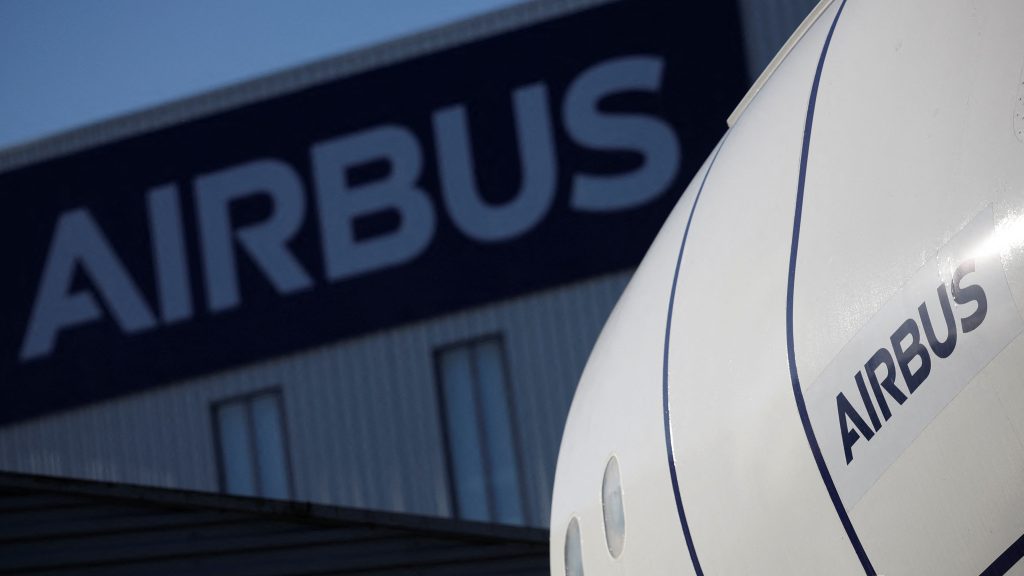
Airbus clinched orders for 65 jets from two of Boeing’s key Asian customers on Thursday, in a win for the European planemaker as its U.S. rival grapples with quality issues after a mid-flight panel blowout on a 737 MAX 9 jet.
The orders are a blow to Boeing, which is struggling with a sprawling manufacturing crisis that has caused it to limit narrow-body jet production, making it harder to catch up to its European rival.
Japan Airlines (JAL) said it would buy 21 wide-body A350-900 and 11 A321neo narrow-body jets from Airbus, which will provide smaller single-aisle jets to the longtime Boeing customer for the first time.
The order from Japan’s second-largest airline allows Airbus to grow its foothold on a part of its rival’s turf following a breakthrough first order of A350 wide-body, or twin-aisle, jets used on longer international routes just over a decade ago.
JAL also said it would buy 10 Boeing 787 Dreamliner jets.
South Korea’s largest carrier, Korean Air, also said it would order 33 A350s in a $13.7 billion deal – its first purchase of that aircraft family as it prepares for a merger with Asiana Airlines <020560.KS>, another South Korean carrier.
Boeing and Airbus do not publish current list prices for their aircraft.
Airbus has been steadily growing single-aisle market share with its A321neo in the wake of multiple crises involving the Boeing 737 MAX, including two fatal crashes in 2018 and 2019. Following the Jan. 5 panel blowout on an Alaska Airlines flight, Boeing is facing probes into the company’s safety and quality standards, and its production has been curbed by regulators.
The limited Boeing orders were not a direct result of the planemaker’s troubles, a source familiar with JAL’s order said. However, the risk of delays due to those troubles could not be entirely ignored, and JAL wanted to diversify risk by not relying on one plane manufacturer, the source said on condition of anonymity.
Deals for plane orders typically take months to negotiate
Richard Aboulafia, an aerospace analyst and Boeing critic, said the U.S. planemaker gave Airbus “a window of opportunity in Japan” back in 2013 with the A350 order, and the European planemaker is now growing that toehold.
Rob Stallard, an analyst with Vertical Research Partners, noted that Boeing has won earlier orders with JAL and Korean Air and those airlines run a mixed fleet.
According to Boeing, the planemaker has 65% of in-service market share in Northeast Asia, which includes Taiwan, Korea and Japan.
“We deeply appreciate Japan Airlines for their continued confidence in the 787 Dreamliner, which is the most popular wide-body passenger airliner in aviation history,” Boeing said in a statement.
STRONG DEMAND
The two Asian carriers are the latest to wade into a tightening market for efficient, long-haul aircraft as international travel nears a full recovery, after a prolonged downturn in demand for the industry’s big jets.
“It shows that the strong demand for new wide-body jets, particularly from Asian and Middle Eastern carriers, has continued from 2023 into this year,” Stallard added. “Just like the narrow-bodies, the (planemakers) now have no issue with demand – the challenge is supply.”
JAL said deliveries for its orders were expected between the 2025 and 2033 financial years and that they had a total catalogue price of about $12.4 billion.
It said an extra A350-900 would also be bought to replace one destroyed in a runway collision at Haneda airport in Tokyo in January.
JAL said it was ordering the more efficient, new-generation planes for its full-service and low-cost carrier operations now because of the global shortage of new planes, which is expected to persist.
Korean Air, which operates a mixed fleet of Boeing and Airbus wide- and narrow-body aircraft, said its order was for its long-term fleet planning as older aircraft retire and to meet sustainability goals.
Airbus says the A350s use 25% less fuel than similar older-generation planes.
(Reporting by Maki Shiraki and Mariko Katsumura and Allison Lampert; Writing by Lisa Barrington; Editing by Clarence Fernandez, Mark Potter and Paul Simao)